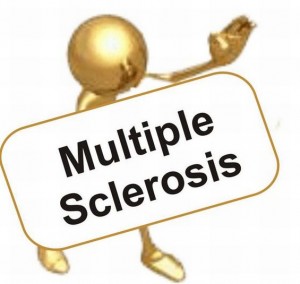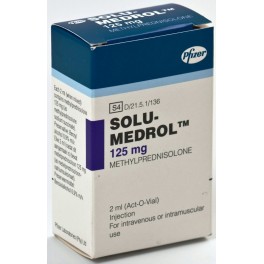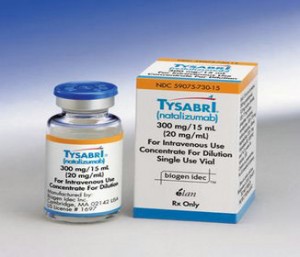Learn all about Multiple Sclerosis (MS) Symptoms, Treatment, Causes and Research. Multiple sclerosis is an inflammatory and potentially debilitating disease. In this disease insulating covers of brain cells (neurons)and spinal cord are become damaged due to attack of your body’s own immune system that eats away the protective sheath(myelin) or insulating cover that covers your nerves. Damage to insulating covers or myelin causes interference in co-ordination between brains, spinal cord and other parts of body. This is very debilitating condition and it may cause irreversible degeneration or deterioration of nerves.
Symptoms of multiple sclerosis(MS) widely vary from person to person. Sometimes symptoms may disappear for a particular period of time and then again reappears depending upon the amount of damage and the nerves that are damaged. Patients suffering from severe kind of multiple sclerosis may exhibit pronounce symptoms like unable to walk and speak. These symptoms are important in the diagnosis of progressive type of multiple sclerosis. Multiple sclerosis (MS) has no cure but it can be managed by some medicines that will ease the symptoms.
Symptoms of Multiple Sclerosis (MS)
Symptoms of multiple sclerosis vary from person to person and also depends upon the area affected by multiple sclerosis. Some common symptoms of multiple sclerosis are mentioned below:
- Feeling of numbness or weakness in limbs
- Partial or complete loss of vision (optic neuritis)
- Tingling or pain in different parts of body
- Lack of coordination between motor function of brain
- Slurred speech
- Fatigue
- Dizziness
- Ataxia
- Unstable mood
- Cognitive impairment
- Depression
- Nystagmus
- Heat sensitivity
Causes of Multiple Sclerosis (MS)
Genetic Causes
Although multiple sclerosis is not considered as hereditary disease but number of genetic variations may increase the risk of multiple sclerosis. People having multiple sclerosis in their family history have higher risk of developing multiple sclerosis. Research has shown that number of genetic variations in combination with environmental factors play important role in the development of multiple sclerosis. Recent study has shown that more than one gene is involved in pathogenesis of multiple sclerosis. It has been observed that genes responsible for the pathogenesis of multiple sclerosis become dominant in presence of certain mediators and triggering factors.
Infectious Agents
It has been observed that exposure to certain infectious agents early in life have role in the development of multiple sclerosis at later ages. Various studies have proposed that multiple sclerosis caused by infectious agent includes:
- Presence of oligoclonal bands in brain
- Encephalomyelitis associated with some infection
- Brain infection in previous ages
- Cases of multiple sclerosis in family history
Other Factors
Number of other factors are also play important role in development of multiple sclerosis. These factors include smoking,alcoholism,brain injury diet,hormones and hyperactivity of immune system due to some allergens. Research has shown that various diseases like gout and neuropathy are also involved in the development of multiple sclerosis in later ages. But still pathopysiology of multiple sclerosis is not clearly understood and research is going on to find out the exact cause of multiple sclerosis.
Treatment of Multiple Sclerosis (MS)
Multiple sclerosis cannot be cure but it can be managed by certain medications which are used to ease the symptoms of multiple sclerosis. These drugs are discussed below:
Multiple Sclerosis (MS) Treatment with Corticosteroids
As the name indicates, corticosteroids belongs to steroids class and mainly used to reduce inflammation caused by allergy, infection or due to some trauma. Corticosteroids are used in number of disorders like asthma, cancer, hypersensitivity and in auto-immune disease like multiple sclerosis. Main purpose of using corticosteroids in auto-immune disease is that they will suppress the immune system therefore, they are also termed as immunosuppressants. Most commonly used corticosteroid is prednisolone or methyl prednisolone which is available as prescription only medicine with brand name of solu-medrol.
Multiple Sclerosis (MS) Treatment with Plasmapheresis
plasmaphere is basically a technique in which blood is removed from body and pass it into mechanical separator which separates blood cells and plasma(liquid part of blood).Blood cells are then mixed with specially prepared replacement solution and return the blood to your body.
It is not necessary to remove all blood of your body only a measured quantity of blood is removed from body and passed through a separator to separate red blood cells and plasma. Then red blood cells are mixed with replacement solution and return back to the your body. This technique is useful because it removes antigens present in the blood causing hypersensitivity of immune system.
Multiple Sclerosis (MS) Research
Some medicines have been discovered by doing research on multiple sclerosis. These medicines are effective in the treatment and management of multiple sclerosis.
Multiple Sclerosis (MS) Treatment with Beta interferon
It is type of interferon that is being used in the treatment of multiple sclerosis because it slows down the progression of disease by reducing the number of attacks and decreasing the severity of disease. It is effective in the treatment of multiple sclerosis but interferon may produce many side effects like reaction in the injection area,liver damage and body pain.
Multiple Sclerosis (MS) Treatment with Natalizumab
Natalizumab is a humanized monoclonal antibody and research oriented substance that is being used to reduce severe attacks of multiple sclerosis by interfering with movement of potentially damaging immune cells from your blood stream to your brain and spinal cord. Natalizumab is usually given when patient is showing no response to other medicines or cannot tolerate medicines due their side effects. It is available with brand name of TYSABRI.
 Health & Care Information
Health & Care Information 










